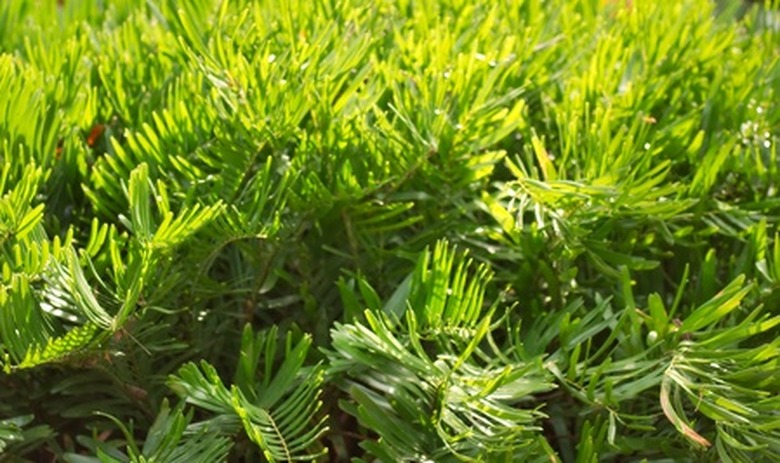Tap Water Vs. Distilled Water For Plants
The right quantity and type of water is essential for the health, growth and development of all plants. While a garden hose attached to a faucet provides immediate and convenient irrigation, it is not always the safest. Although the government regulates the content and purity of tap water, it varies from place to place. In some cases a gardener needs to consider using distilled or bottled water.
Tap Water
Tap water comes from a municipality or well. Treatment plants add purifying substances such as chlorine and fluoride to it so it is safe for public use, but it harms plant growth. According to the University Of Saskatchewan Department of Plant Sciences, prolonged use of tap water exposes plants to high levels of salts, magnesium and calcium that are harmful.
- The right quantity and type of water is essential for the health, growth and development of all plants.
- While a garden hose attached to a faucet provides immediate and convenient irrigation, it is not always the safest.
The Environmental Protection Agency states that the government does not regulate individual wells for contaminants and pollutants, therefore private wells contain elements harmful to both humans and plants. Well water is also hard and needs softeners prior to use. However, this gives rise to many other plant problems because softeners contain potassium and sodium certain plants are sensitive to.
Distilled Water
Distilled or bottled water is basically boiled at the plant to remove chemicals and impurities. The resultant pure vapors are re-condensed into pure water and added into clean bottles. Distilled water is similar to rain water because it contains no additives that harm plants.
Indoor and Outdoor Plant Irrigation
Indoor plants experience buildup of chemicals around their roots that do not wash away easily in the contained environment, which is why distilled water for these plants is a source of irrigation. Some gardeners recommend collecting rain water by placing large barrels outside during heavy rains and using it for outdoor plants. This natural form of soft water is clean, pure and inexpensive.
- The Environmental Protection Agency states that the government does not regulate individual wells for contaminants and pollutants, therefore private wells contain elements harmful to both humans and plants.
- Distilled water is similar to rain water because it contains no additives that harm plants.
Considerations
Whether using tap or distilled water, water the plant properly to ensure its health. Improper watering causes weak roots that make the plant susceptible to disease. Because the amount of water each plant receives varies, follow care and maintenance instructions your plant came with for optimal health.
Water the plant frequently during the hot summer when it evaporates faster and dries out the soil and roots. During the winter months when indoor heaters are on and the temperature is warm, houseplants get thirsty sooner and require more water.
Make sure distilled water is at room temperature before feeding the plants. Very cold or very hot water can shock the plants, and even kill houseplants in extreme conditions.
- Whether using tap or distilled water, water the plant properly to ensure its health.
- Very cold or very hot water can shock the plants, and even kill houseplants in extreme conditions.
Final Choice
The type of water a gardener should use forher plants depends largely on the plant itself. While some plants thrive on tap water without signs of inherent problems, others show signs of rejecting the water, such as drying or browning of foliage at the tips. In such a case consider irrigating the plant with distilled water.
